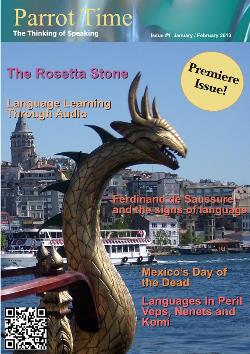
|
Other words to which Swift objected, though most of them are not the words of one syllable with which he declared we were "overloaded," and which he considered the "disgrace of our language," were banter, sham, bamboozle, bubble, bully, cutting, shuffling, and palming. We may notice that some of these words, such as banter and sham, are now quite good English, and most of the others have at least passed from the stage of slang into that of colloquialism. The word bamboozle is still almost slang, though perhaps more common than it was two hundred years ago, when Swift attacked it. Even now we do not know where it came from. There was a slang word used at the time but now forgotten--bam, which meant a trick or practical joke; and some scholars have thought that bamboozle (which, of course, means "to deceive") came from this. On the other hand, it may have been the other way about, and that the shorter word came from the longer. The word bamboozle shows us how hard it is for meaningless slang to become good English even after a struggle of two hundred years. We have seen how many slang words in English have become good English, so that people use with propriety expressions that would have seemed improper or vulgar fifty or ten or even five years ago. Other interesting words are some which are perfectly good English as now used, but which have been borrowed from other languages, and in those languages are or were mere slang. The word bizarre, which we borrowed from the French, and which means "curious," in a fantastic or half-savage way, is a perfectly dignified word in English; but it must have been a slang word at one time in French. It meant long ago in French "soldierly," and literally "bearded"--that is, if it came from the Spanish word bizarra, "beard." Another word which we use in English has a much less dignified use in French. We can speak of the calibre of a person, meaning the quality of his character or intellect; but in French the word calibre is only in ordinary speech applied to things. To speak of a "person of a certain calibre" in French is very bad slang indeed. Again, the word fiasco, which we borrowed from the Italian, and which means the complete failure of something from which we had hoped much, was at first slang in Italian. It was applied especially to the failure of a play in a theatre. To break down was far fiasco, which literally means "make a bottle." The phrase does not seem to have any very clear meaning, but at any rate it is far removed from the dignified word fiasco as used in English. The word sack as used in describing the sack of a town in war is a picturesque and even poetic word; but as it comes from the French sac, meaning "pack" or "plunder," it is really a kind of slang. On the other hand, words which belong to quite good and ordinary speech in their own languages often become slang when adopted into another. A slang word much used in America and sometimes in England (for American expressions are constantly finding their way into the English language) is vamoose, which means "depart." Vamoose comes from a quite ordinary Mexican word, vamos, which is Spanish for "let us go." It is very interesting to find that many of our most respectable words borrowed from Latin have a slang origin. Sometimes these words were slang in Latin itself; sometimes they were used as slang only after they passed into English. The French word tête, which means "head," comes from the Latin testa, "a pot." (We have seen that this is the word from which we get our word test.) Some Romans, instead of using caput, the real Latin word for "head," would sometimes in slang fashion speak of some one's testa, or "pot," and from this slang word the French got their regular word for head. Besides the fact that slang often becomes good English, we have to notice that good English often becomes slang. The word insult comes from the Latin insultarc, which meant at first "to spring or leap at," and afterwards came to have the same meaning as it has with us. The persons who first used this expression in the second sense were really using slang, picturing a person who said something unpleasant to them as "jumping at them." We have the same kind of slang in the expression "to jump down one's throat," when we mean "to complain violently of some one's behaviour." The word effrontery, which comes to us from the French effronterie, is really the same expression as the vulgar terms face and cheek, meaning "impudence." For the word comes from the Latin frons, "the forehead." An example of a word which was quite good English, and then came to be used as slang in a special sense, and then in this same special sense became good English again, is grit. The word used to mean in English merely "sand" or "gravel," and it came to mean especially the texture or grain of stones used for grinding. Then in American slang it came to be used to mean all that we mean now when we say a person has "grit"--namely, courage, and strength, and firmness. This use of the word seemed so good that it rapidly became good English; but the American slang-makers soon found another word to replace it, and now talk of people having "sand," which is not by any means so expressive, and will probably never pass out of the realm of slang. An example of a word which was at first used as slang not many years ago, and is now, if not the most elegant English, at least a quite respectable word for newspaper use, is maffick. This word means to make a noisy show of joy over news of a victory. It dates from the relief of Mafeking by the British in 1900. When news of its relief came people at home seemed to go mad with joy. They rushed into the streets shouting and cheering, and there was a great deal of noise and confusion. It was noticed over and over again that there was no "mafficking" over successes in the Great War. People felt it too seriously to make a great noise about it.  A mexican cowboy might tell you to "vamoose". These men have real "grit". A slang word which has become common in England during the Great War is sträfe. This is the German word for "punish," and became quite familiar to English people through the hope and prayer to which the Germans were always giving expression that God would "sträfe" England. The soldiers caught hold of the word, and it was very much used in a humorous way both at home and abroad. But it is not at all likely to become a regular English word, and perhaps will not even remain as slang after the war. Besides the fact that slang often becomes good English, we have to notice that good English often becomes slang. One of the most common forms of slang is to use words, and especially adjectives, which mean a great deal in themselves to describe quite small and ordinary things. To speak of a "splendid" or "magnificent" breakfast, for instance, is to use words out of proportion to the subject, though of course they are excellent words in themselves; but this is a mild form of slang. There are many people now who fill their conversation with superlatives, although they speak of the most commonplace things. A theatrical performance will be "perfectly heavenly," an actress "perfectly divine." Apart from the fact that nothing and no one merely human can be "divine," divinity itself is perfection, and it is therefore not only unnecessary but actually incorrect to add "perfectly." A scene or landscape may very properly be described as "enchanting," but when the adjective is applied too easily it is a case of good English becoming slang. Then, besides the use of superlative adjectives to describe things which do not deserve such descriptions, there is a crowd of rarer words used in a special sense to praise things. Every one knows what a "stunning blow" is, but few people can ever have been stunned by the beauty of another's clothes. Yet the expression "stunning hat" or "stunning tie" is quite common. Expressions like a "ripping time" are even more objectionable, because they are even more meaningless. Then, besides the slang use of terms of praise, there are also many superlatives expressing disgust which the slangmongers use instead of ordinary mild expressions of displeasure. To such people it is not simply "annoying" to have to wait for a lift on the underground railways; for them it is "perfectly sickening." Horrid, a word which means so much if used properly, is applied to all sorts of slightly unpleasant things and people. When one thinks of the literal Latin meaning of this word ("so dreadful as to cause us to shudder"), the foolishness of using it so lightly is plain. People frequently now declare that they have a "shocking cold"--a description which, again, is too violent for the subject. Another form of slang is to combine a word which generally expresses unpleasant with one which expresses pleasant ideas. So we get such expressions as "awfully nice" and "frightfully pleased," which are actually contradictions in terms. This kind of slang is the worst kind of all. It soon loses any spice of novelty. It is not really expressive, like some of the quaint terms of school or university slang, and it does a great deal of harm by tending to spoil the full force of some of our best and finest words. It is very difficult to avoid the use of slang if one is constantly hearing it, but, at any rate, any one who feels the beauty of language must soon be disgusted by this particular kind of slang. |
| Revisited - Slang | ||||||
| Writer: | Elizabeth O'Neill | |||||
| Images: | ||||||
| ||||||
| Sources: | ||||||
| ||||||
All images are Copyright - CC BY-SA (Creative Commons Share Alike) by their respective owners, except for Petey, which is Public Domain (PD) or unless otherwise noted.
comments powered by Disqus



















